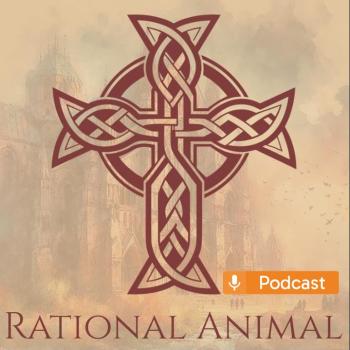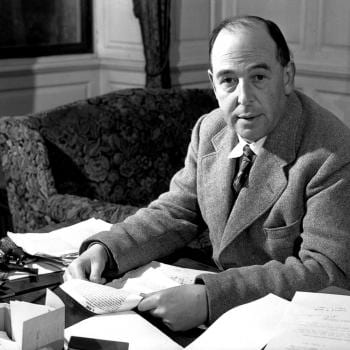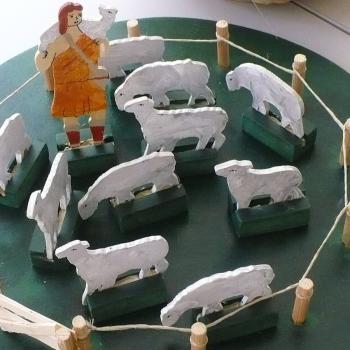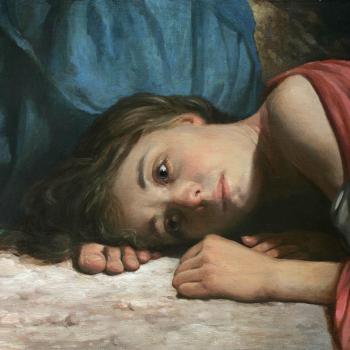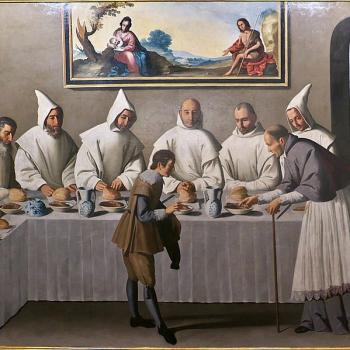Ninth grade is when our parish does confirmation, and my son indicated last summer that yes, he’d like to be confirmed. Would it be possible, I inquired with Father E., for the boy to prepare for the sacrament outside the bounds of the usual parish program? For various reasons Father said no, he really needed the kid to go through the youth group just like everyone else.
I happen to like our youth minister, and because her gifts are so different than mine, I was happy for the boy to spend a year being mentored by her. We balance each other out. What I did not understand was how impossible her job is.
Our diocese sets out standards for what students are supposed to learn each year in religious education. The confirmation class is mostly spent covering first through fifth grades. I’ve been the kid who showed up to confirmation prep knowing nothing at all about the faith, and I’ve been the catechist who has to put down the book and do a 101 on the most basic elements of the Christian faith. I don’t for a moment second guess the need for a massive pre-sacramental review.
But I am deeply concerned that at my parish and many others, we regard this need as normal.
Kidnapped and Sent to the Spiritual Orphanage
In the helping professions, there’s a tendency to want to sweep in and “rescue” children by making them wards of an institution. We look at the saintly orphanage workers in certain impoverished countries, and forget that the “orphans” aren’t orphans — they have living family members who would take care of them if only they could. The solution to the “orphan crisis” in such situations isn’t to build bigger, better orphanages, but to work towards economic, political, and social reforms that will make it possible for families to raise their own children.
In our parishes, we have just such an orphan crisis.
Life in a Disciple-Free Diocese
I was browsing another set of diocesan catechetical guidelines today, and happened on this snippet about parents providing faith formation at home:
In this option, parents take on the role of the catechist in the formal sense. By virtue of their parental role, parents certainly have the right to teach their children at home. At the same time, the parish has the right to direct and moderate the process. Even though catechesis is happening within the home setting, it is part of a larger parish catechetical program, which must conform to diocesan guidelines.
Home-based catechesis is a difficult option, because it involves a time commitment on the part of the parent in preparation and in structuring the time for formal catechesis. It also involves an additional time commitment on the part of the parish catechetical leader in preparing the parent(s) and monitoring the family’s progress.
(Guidelines for Parish Catechetical Leaders 2014, p. 50)
The goal of the document, of course, is to make sure that pastors are fulfilling their responsibilities — a good goal. But in the process, note what happens: It becomes inconceivable to imagine the existence of parents who are capable of instructing their children in the faith.
We aren’t speaking here of cautions set forth when pastors note red flags. We are speaking of norms. The norm is to assume that Catholic parents simply cannot be trusted to teach their children the Catholic faith.
If you spend much time around Catholics, you know this fear has its basis in sordid reality.
The Solution that Is No Solution
So what do you do when the parents in your parish are not living up to their responsibilities? Our current solution is to swoop up all the children and put them in a classroom an hour a week with a spiritual orphanage worker. Since the parents are unable to teach, we’ll teach for them.
There’s fallout, of course. It’s exhausting trying to parent twenty children, many of whom have been spiritually neglected for years. It’s difficult finding qualified volunteers, because the work is frustrating and so many adults in the parish don’t know their faith. Because new families are constantly trickling in with their never-catechized children, we end up having to re-teach the same basic facts year after year. We’re nowhere near hitting diocesan standards — if our ninth graders have never opened a Bible, they certainly haven’t read whole books of it.
The staff and the parish resources are stretched so thin there simply isn’t room for adult faith formation. We’re too busy taking care of the orphans — whose parents are sitting in the parking lot waiting for class to get out.
Meanwhile, the kids age out of our programs and leave the faith, because they lack the the factor that has the most bearing on whether an adult continues to practice the faith: Having been raised in a home where the parents were disciples.
Parents Have Immortal Souls, Too
When you monkey around with Church teaching, bad things happen. We’ve identified a problem — kids whose parents aren’t disciples — and we’re so busy “solving” the crisis by heroically stepping in to replace the parents, that we’ve overlooked a small detail: Doing so is contrary to the Catholic faith.
Parents, not catechists, are the people ordained by God to pass on the faith to their children. The mission of the Church is to make disciples of those parents, and equip them to teach their children. If we have to choose between programs for adults and programs for children, adults are the priority. Not because we don’t care about kids, but because we want what is best for kids.
What is best for kids is what is best for adults and what is best for the Catholic faith: Adult disciples passing on the faith within their families.

Artwork: Anatoly Shcherbak (Own work) [CC BY-SA 3.0], via Wikimedia Commons




